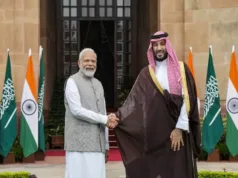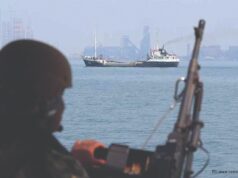
Iraq’s Kurds defied widespread opposition to vote in a historic independence referendum, sparking fresh tensions with Baghdad and threats from Turkey while Washington warned it would “increase instability”.
The vote in the autonomous Kurdish region of northern Iraq and some disputed areas is non-binding and will not lead automatically to independence, but this move is seen by the Kurds as a major step towards a long-cherished dream of statehood.
A high turnout of 72 percent was registered, with 3.3 million of the 4.58 million registered voters taking part, election commission spokesman Shirwan Zirar said late Monday. Prior to the vote, the commission had put the electorate at 5.3 million.
Results were expected within 24 hours, with an overwhelming “yes” vote not in doubt.
Washington is “deeply disappointed” that the ballot went ahead.
“The United States’ historic relationship with the people of the Iraqi Kurdistan Region will not change in light of today’s non-binding referendum, but we believe this step will increase instability and hardships for the Kurdistan region and its people,” State Department spokeswoman Heather Nauert said in a statement.
In New York, UN chief Antonio Guterres also expressed concern about the “potentially destabilizing effects” of the referendum.
Expressing respect for “the sovereignty, territorial integrity and unity of Iraq”, he called for differences to be resolved through “structured dialogue and constructive compromise”.
Lawmakers in Baghdad declared the vote unconstitutional and demanded the government to send troops to disputed areas where the referendum was taking place.
In Istanbul, President Recep Tayyip Erdogan warned that Turkey – which fears the effects of the vote on its own sizable Kurdish population – would shut its border with Iraqi Kurdistan and threatened to block key exports.
And in Kirkuk, a disputed city where the vote controversially went ahead, security forces deployed on the streets after a curfew was imposed in parts of the city.
Veteran Iraqi Kurd leader Massud Barzani, who initiated the vote, smiled as he cast his ballot early in the morning, wearing a traditional headscarf.
He pushed ahead with the referendum despite the opposition from Baghdad and Ankara, but also from Iran which has its own large Kurdish minority, and Western countries that fear the vote could hamper the fight against the Islamic State (IS) jihadist group in which cooperation between Baghdad and the Kurds has been key.
Left without a state of their own when the borders of the Middle East were redrawn after World War I, the Kurds see themselves as the world’s largest stateless people.
The non-Arab ethnic group number between 25 and 35 million people spread across Iraq, Iran, Turkey and Syria.








